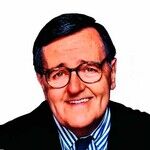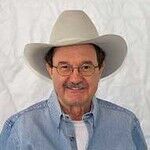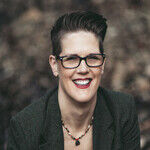Other than teaching me to speak it, my French Canadian immigrant grandmother taught me three things about the French language.
The first was that all animals and all babies speak French.
The second is that God speaks French.
The third is that on Christmas Eve, very late, after midnight Mass, the animals can speak. In French, of course.
That last belief is common to a few cultures. Because the animals helped to warm the Christ child, the legend says, they are allowed to talk for a few hours on Christmas Eve.
My grandmother grew up on a potato farm near a place in Quebec called Trois Pistoles. It was so cold in the winter that her family's barn was built onto the house, so they could feed or check on their animals without having to go outside.
Every Christmas Eve, she would ask her father if she could stay out in the barn to hear the animals talk. Her father would let her, but she always fell asleep in the hay before the animals spoke. Her father would carry her to bed. The next day, Christmas Day, he would tell her that when he came to get her, the animals were all talking, but that he hadn't been able to wake her up to listen.
The little lord Jesus asleep in the hay, the old carol says.
My little grandmother asleep in the hay while the animals spoke French to each other in the drowsy night of a wooden barn.
We always hear of the shepherds who saw the angel of the lord, and they were frightened.
But what about the sheep? They saw the angel, too, and they were frightened. They milled about in the pasture while the angel's light blazed on the hillside.
And the three wise men did not arrive in Bethlehem by bus. They came by steady, big-nosed plodding camels, rousted out of the hay to go see a new king.
The stable itself creaked a little in the rising wind, and the oxen and the goat and the donkey rubbed shoulders around the manger, each soft nose poking in for a closer look.
The cats came closer on small, silent feet, looking for petting or food, and then surprised by the thin cries of the squalling man kitten so new and bloody in the straw. Maybe a sensitive pink nose against a small, weak hand.
And maybe the cow saw the future. The three black crosses, the Roman butchers nearby.
"They kill us, too," the cow said. "All of us. They buy and sell us and whip us and drive us down long, hard roads, but, in the end, they always kill us.
"We give them our milk and our babies, and they kill us anyway," the cow said, and blew its warm breath on the baby. "They'll have your skin in the end, full of wounds."
Of all the things alive on that night more than 2,000 years ago, only the animals have kept faith, have continued to warm and comfort, to live free in the little wild places still left on the planet. The panther's paw and the horse's hoof are as they ever were.
And we humans? We think we improve continuously, but all we do is write new slogans and make new tools of slaughter. It's all the same. It's all three black crosses against the sky, all the time.
My wife, Deborah, and I own two cats. Her cat is a curvy, entitled calico named Maggie. My cat is a dark gray tabby named Jack. I never speak English to Jack, only French.
Every Christmas Eve, I lie awake on my back until after Deborah goes to sleep, and I wait for Jack to speak.
But I always fall asleep in the hay.
To find out more about Marc Munroe Dion, and read features by Creators Syndicate writers and cartoonists, visit www.creators.com. Dion's latest book, a collection of his best columns, is called "Devil's Elbow: Dancing in the Ashes of America." It is available in paperback from Amazon.com, and for Nook, Kindle, and iBooks.
Photo credit: leeashby1980 at Pixabay






View Comments